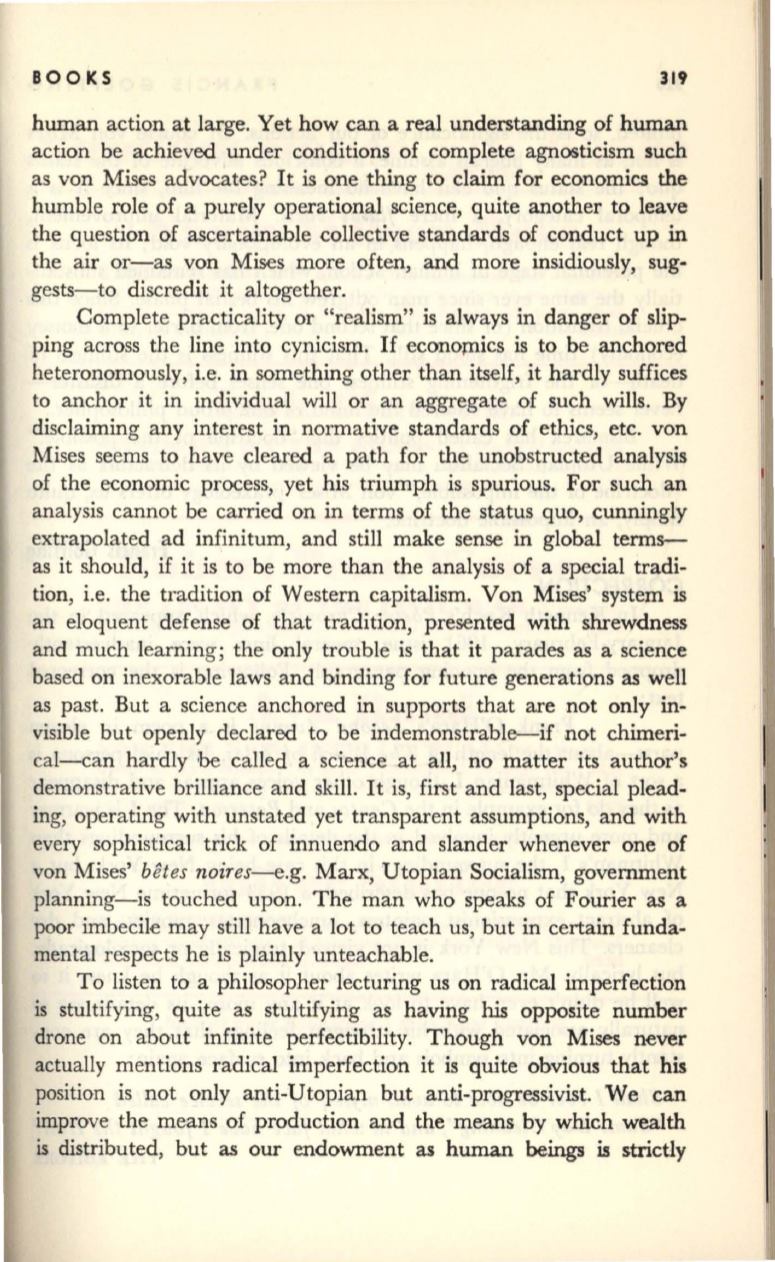
BOO KS
319
human action at large. Yet how can a real understanding of human
action be achieved under conditions of complete agnosticism such
as von Mises advocates? It is one thing to claim for economics the
humble role of a purely operational science, quite another to leave
the question of ascertainable collective standards of conduct up in
the air or-as von Mises more often, and more insidiously, sug–
gests-to discredit it altogether.
Complete practicality or "realism" is always in danger of slip–
ping across the line into cynicism.
If
economics is to be anchored
heteronomously, i.e. in something other than itself, it hardly suffices
to anchor it in individual will or an aggregate of such wills. By
disclaiming any interest in normative standards of ethics, etc. von
Mises seems to have cleared a path for the unobstructed analysis
of the economic process, yet his triumph is spurious. For such an
analysis cannot be carried on in terms of the status quo, cunningly
extrapolated ad infinitum, and stilI make sense in global terms-–
as it should, if it is to be more than the analysis of a special tradi–
tion, i.e. the tradition of Western capitalism. Von Mises' system is
an eloquent defense of that tradition, presented with shrewdness
and much learning; the only trouble is that it parades as a science
based on inexorable laws and binding for future generations as well
as past. But a science anchored in supports that are not only in–
visible but openly declared to be indemonstrable-if not chimeri–
cal-can hardly
be
called a science at all, no matter its author's
demonstrative brilliance and skill. It is, first and last, special plead–
ing, operating with unstated yet transparent assumptions, and with
every sophistical trick of innuendo and slander whenever one of
von Mises'
betes noires--e.g.
Marx, Utopian Socialism, government
planning-is touched upon. The man who speaks of Fourier as a
poor imbecile may still have a lot to teach us, but in certain funda–
mental respects he is plainly unteachable.
To listen to a philosopher lecturing us on radical imperfection
is stultifying, quite as stultifying as having
his
opposite number
drone on about infinite perfectibility. Though von Mises never
actually mentions radical imperfection it is quite obvious that his
position is not only anti-Utopian but anti-progressivist. We can
improve the means of production and the means by which wealth
is
distributed, but as our endowment as human
beings
is strictly


